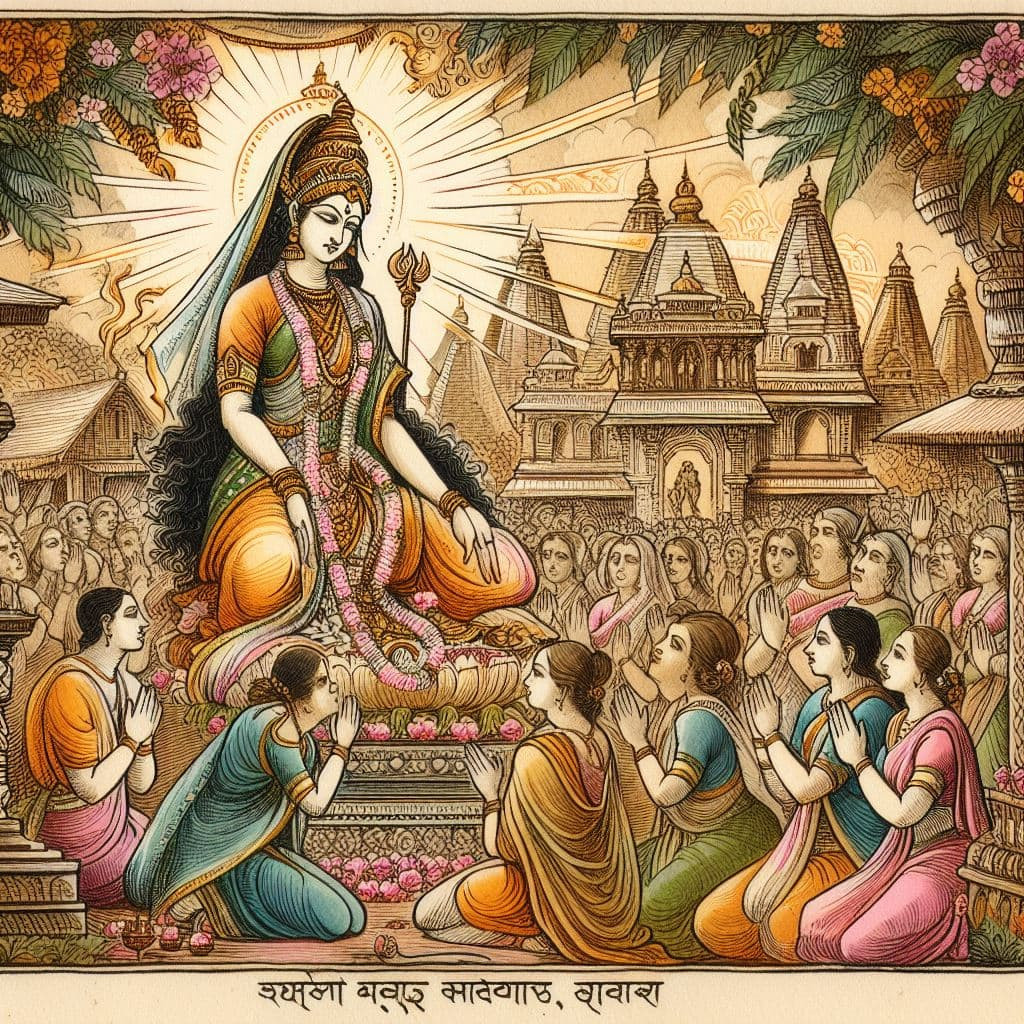Vasant Panchami, also known as Basant Panchami, is a vibrant Hindu festival celebrated in India and other parts of South Asia. It marks the arrival of spring and is dedicated to the worship of Goddess Saraswati, the deity of knowledge, music, arts, and wisdom. The word “Vasant” translates to “spring,” while “Panchami” refers to the fifth day of the Hindu lunar month.
Celebrations and Rituals
Vasant Panchami is celebrated with great enthusiasm and joy across different regions in India. People dress in yellow attire, which symbolizes the blooming mustard flowers that are associated with this season. Yellow represents prosperity, spirituality, and new beginnings.
One of the key rituals on this day is Saraswati Puja. Devotees set up elaborate altars or pandals adorned with flowers and decorations dedicated to Goddess Saraswati. The puja involves offering prayers, chanting mantras, and performing traditional rituals to seek blessings for knowledge and wisdom.
From our archives:
Listen to the story Everything Looks New, which is a story about the start of Spring season
This story is written by Mala Kumar and Manisha Chaudhary, and narrated by Sheerali Biju.
Sound effects : Soundbible and Freesfx. Music by Bensound.
Significance of Vasant Panchami
Vasant Panchami holds immense cultural and religious significance in Indian society. It signifies the end of winter and welcomes the rejuvenation of nature during springtime. This festival also celebrates learning, creativity, and intellectual pursuits.
The color yellow plays a crucial role during Vasant Panchami as it represents vibrancy, positivity, and optimism. It reflects the blossoming fields of mustard flowers that paint landscapes in shades of golden yellow during this season.
Saraswati Puja: Worshiping the Goddess of Knowledge
Saraswati Puja is an integral part of Vasant Panchami celebrations. Goddess Saraswati is revered as the embodiment of knowledge, artistry, music, literature, and learning. Students invoke her blessings to excel in their studies while artists seek inspiration for their creative endeavors.
During Saraswati Puja, the idol of Goddess Saraswati is placed on a pedestal and adorned with flowers, garlands, and traditional ornaments. Devotees offer fruits, sweets, and other delicacies as prasad (blessed food) to the goddess. Musical instruments, books, and other educational tools are also placed near the deity as offerings.

Rituals during Saraswati Puja
The rituals performed during Saraswati Puja vary across different regions of India. However, some common practices include:
-
- Akshar-Abhyas: This ritual involves initiating young children into the world of education by making them write their first letters or words under the guidance of a priest or elder family member.
-
- Vidya-Arambha: It is a ceremony where students begin their formal education by writing their first words in front of Goddess Saraswati.
-
- Saraswati Vandana: Devotees sing hymns and prayers dedicated to Goddess Saraswati to seek her blessings for knowledge and wisdom.
-
- Feasting: After the puja concludes, devotees partake in a festive meal together with family and friends. Various traditional dishes are prepared and shared as a symbol of community bonding.
Takeaways
Vasant Panchami is not just a festival but an embodiment of hope, renewal, and devotion towards knowledge. It celebrates the arrival of spring while honoring Goddess Saraswati’s divine grace in bestowing wisdom upon humanity. Through vibrant celebrations and rituals like Saraswati Puja, this festival continues to inspire people to pursue intellectual growth, creativity, and spiritual enlightenment.
This post was published as a part of Festivals of Bharat Series
